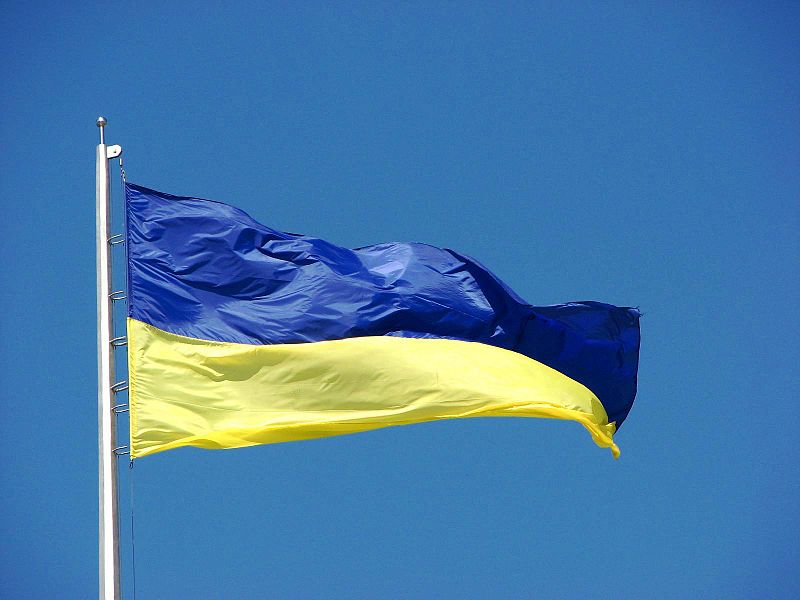
Thousands of demonstrators took to the streets of London on Saturday in a powerful show of support for Ukraine, gathering outside the Russian Embassy in Notting Hill to protest against
Russia’s ongoing invasion.
Chanting slogans such as “Stop Russia, stop the war” and “Russia is a terrorist state”, protesters marched through the city, carrying banners condemning Russian aggression. Messages on placards included “Occupation is not peace! Do not betray Ukraine!” and “Trump, Musk, and Putin are in denial of the truth.”
The rally comes as the war, which began with Russia’s full-scale invasion on February 24, 2022, is set to enter its fourth year on Monday.
Continued support from the UK
Since the start of the conflict, Britain has been a steadfast supporter of Ukraine, imposing sanctions on Moscow and providing both military and financial aid. However, recent diplomatic tensions between Washington and Kyiv have raised concerns over the future of the war.
Ukrainian President Volodymyr Zelensky recently met with U.S. officials in an attempt to solidify international backing and explore possible peace negotiations.
At the protest, Martin Vincent, 68, expressed his commitment to Ukraine’s cause.
“I’m not Ukrainian, but I recognize the great danger they are in,” he said. “We cannot abandon them. It is our duty to stand with Ukraine.”
Among the demonstrators were Ukrainians like Nataliya, a university student who chose not to disclose her last name due to security concerns.
“I feel so homesick and vulnerable right now. I don’t know if I’ll ever be able to return to my country,” she said, wearing a traditional floral crown in the blue and yellow of the Ukrainian flag.
Others, like 27-year-old Stella Robinson, voiced concerns about the broader implications of the war.
“This is not just about Ukraine—this is about all of Europe,” she warned. “We can’t turn a blind eye just because Trump wants peace.”
Robinson referenced recent U.S.-Russia diplomatic talks, which have excluded Ukraine and its European allies, sparking fears over the future of Western support.
“But what kind of peace?” she asked. “Frankly, it’s terrifying.”
Public opinion and ongoing conflict
Support for Ukraine remains strong among the British public. According to a YouGov poll last week, 67% of Britons want Ukraine to win the war, while 80% believe it is unacceptable to negotiate peace without Ukraine’s direct involvement.
Despite this, the war has taken a devastating toll. Thousands of Ukrainian civilians have been killed, though the exact number remains unclear.
Meanwhile, former U.S. President Donald Trump has signaled a potential shift in U.S. policy, suggesting the U.S. might abandon war crime prosecutions against Russia in a bid for a swift resolution.
Washington has also proposed a draft United Nations resolution calling for a “swift end” to the war on its third anniversary. However, reports indicate that Zelensky is reluctant to sign a proposed minerals deal with Trump, which could see Ukraine surrender billions in critical resources in exchange for continued U.S. military support.
A Ukrainian source told Sky News that there are “problematic issues” with the draft agreement.
“The agreement is not yet ready to be signed. The current draft contains only unilateral commitments from Ukraine, without reflecting a true partnership.”
In a recent address, Zelensky confirmed that negotiations were ongoing, stating:
“This is an agreement that can strengthen our relations, and the key is to ensure its effectiveness.”
While details remain unclear, Trump is reportedly pushing for access to $500 billion worth of Ukrainian minerals as part of the deal.
A defining moment
As the war reaches its third anniversary, Ukraine’s future remains uncertain. The outcome of international negotiations, particularly U.S. involvement, could significantly influence the next phase of the conflict.
For now, protesters in London continue to demand justice and a free, independent Ukraine, as they stand in solidarity with those enduring the war’s devastation. Photo by Shamil Khakirov from Ukraine, Wikimedia commons.




































